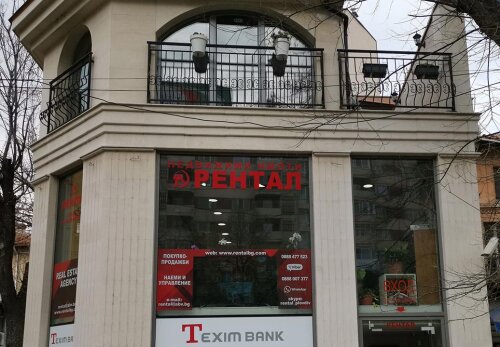Best Restructuring & Insolvency Lawyers in Plovdiv
Share your needs with us, get contacted by law firms.
Free. Takes 2 min.
List of the best lawyers in Plovdiv, Bulgaria
About Restructuring & Insolvency Law in Plovdiv, Bulgaria
Restructuring and insolvency law in Plovdiv, Bulgaria, concerns the legal processes available to individuals, companies, and creditors when a business faces serious financial difficulties or is unable to pay its debts. The aim of these laws is to ensure fair treatment of creditors, provide opportunities for businesses to recover through reorganization, or, if recovery is not possible, to establish an efficient process for liquidating assets and distributing them to creditors. The city of Plovdiv, as Bulgaria’s second largest city and economic hub, hosts many businesses that could potentially benefit from expertly navigating these legal processes.
Why You May Need a Lawyer
Seeking advice from a lawyer who specializes in restructuring and insolvency can be critical in certain situations. Here are some common circumstances where legal help is essential:
- You or your business are unable to pay outstanding debts and need to understand your options.
- Certain creditors are threatening or have initiated legal proceedings against you.
- You want to negotiate payment terms or restructure existing obligations with creditors.
- Your company is considering reorganization to avoid bankruptcy.
- You have received court notices related to insolvency proceedings.
- You are a creditor trying to recover debts from an insolvent debtor in Plovdiv.
- You wish to understand your rights and potential personal liabilities as a manager or owner during insolvency.
- You suspect your debtor is hiding assets or acting unfairly in the process of insolvency.
A specialist lawyer can help protect your interests, represent you in court, and navigate the often-complex local and national regulations governing insolvency and restructuring.
Local Laws Overview
In Plovdiv, as throughout Bulgaria, restructuring and insolvency matters are governed primarily by the Bulgarian Commerce Act. This law provides the framework for insolvency proceedings in court, out-of-court restructuring, and creditor arrangements. Notably:
- Both voluntary and involuntary insolvency proceedings are possible in Bulgarian courts.
- Businesses and, under certain conditions, individuals engaged in commercial activity can be declared insolvent.
- If a company is unable to meet its financial obligations for more than 60 days, it is considered insolvent and must file for insolvency in court.
- The court may appoint a temporary trustee to manage the insolvency process and protect the interests of creditors.
- The management of a company has a legal obligation to initiate insolvency proceedings when insolvency criteria are met.
- The law prescribes a process for creditors to submit their claims and for the ranking and sale of assets to satisfy those claims.
- There are options for court-ordered restructuring, including settlement agreements with creditors, as an alternative to liquidation.
- Fraudulent or preferential transactions made by the debtor before insolvency can be challenged in court.
- Personal liability of company managers or owners may arise if they fail to fulfill their legal duties during insolvency.
- Bulgarian courts have jurisdiction over local companies, but international elements may also affect the process.
Frequently Asked Questions
What is insolvency under Bulgarian law?
Insolvency is the legal state where a company or individual is unable to pay their obligations as they become due. In Bulgaria, insolvency usually means debts have not been paid for more than 60 days.
Who can start insolvency proceedings in Plovdiv?
The debtor, certain creditors, or the Bulgarian National Revenue Agency can file for insolvency in the relevant district court in Plovdiv.
What is the role of the insolvency trustee?
An insolvency trustee is appointed by the court to protect creditors’ interests, manage the debtor’s assets, and ensure fair and lawful distribution during the insolvency process.
What happens to company management during insolvency?
Management may lose control of the company’s affairs, and the insolvency trustee may take over decision-making. Managers are obligated to cooperate and provide all necessary documentation.
Can a business avoid liquidation through restructuring?
Yes. Bulgarian law allows for restructuring plans and settlements with creditors with court approval, enabling businesses to continue operating under new terms.
How are creditors’ claims handled?
All creditors must file claims with the insolvency court. Claims are ranked, and assets are distributed according to legal priority which typically favors secured creditors.
Are there risks of personal liability for company directors?
Yes. Directors can be held personally liable for damages if they fail to file for insolvency on time or if they act recklessly or fraudulently during financial difficulties.
How long do insolvency proceedings usually last?
The timeline varies depending on the complexity of the case, but most cases in Bulgaria can take several months to several years to fully resolve.
Can an individual be declared bankrupt in Bulgaria?
Individual bankruptcy as a formal procedure is limited. However, individuals registered as traders can be declared insolvent under certain conditions.
What documents are needed to initiate insolvency proceedings?
Typically, you will need financial statements, documentation of debts, and evidence supporting insolvency. A lawyer can provide a complete list specific to your case.
Additional Resources
If you need more information, consider contacting the following resources:
- Bulgaria’s Registry Agency, which manages commercial and insolvency registers.
- The District Court of Plovdiv, which handles insolvency cases for the region.
- The Bulgarian Supreme Bar Council for lists of qualified lawyers experienced in insolvency law.
- The Bulgarian Chamber of Commerce and Industry for business advisory services.
- The National Revenue Agency for tax-related queries during insolvency.
Next Steps
If you or your company are facing financial difficulties, or if you are a creditor concerned about unpaid debts in Plovdiv, taking timely action is crucial. Here is how to proceed:
- Gather all documents related to financial obligations, assets, and correspondence with creditors.
- Contact a lawyer specialized in restructuring and insolvency for a confidential consultation.
- Explore your options for negotiation, restructuring, or initiating legal proceedings.
- Follow legal advice promptly to protect your interests and avoid personal liability.
- Stay informed about official updates and procedural deadlines once proceedings begin.
By consulting with a legal specialist and understanding your rights under Bulgarian law, you can approach the restructuring or insolvency process with greater confidence and clarity.
Lawzana helps you find the best lawyers and law firms in Plovdiv through a curated and pre-screened list of qualified legal professionals. Our platform offers rankings and detailed profiles of attorneys and law firms, allowing you to compare based on practice areas, including Restructuring & Insolvency, experience, and client feedback.
Each profile includes a description of the firm's areas of practice, client reviews, team members and partners, year of establishment, spoken languages, office locations, contact information, social media presence, and any published articles or resources. Most firms on our platform speak English and are experienced in both local and international legal matters.
Get a quote from top-rated law firms in Plovdiv, Bulgaria — quickly, securely, and without unnecessary hassle.
Disclaimer:
The information provided on this page is for general informational purposes only and does not constitute legal advice. While we strive to ensure the accuracy and relevance of the content, legal information may change over time, and interpretations of the law can vary. You should always consult with a qualified legal professional for advice specific to your situation.
We disclaim all liability for actions taken or not taken based on the content of this page. If you believe any information is incorrect or outdated, please contact us, and we will review and update it where appropriate.
















